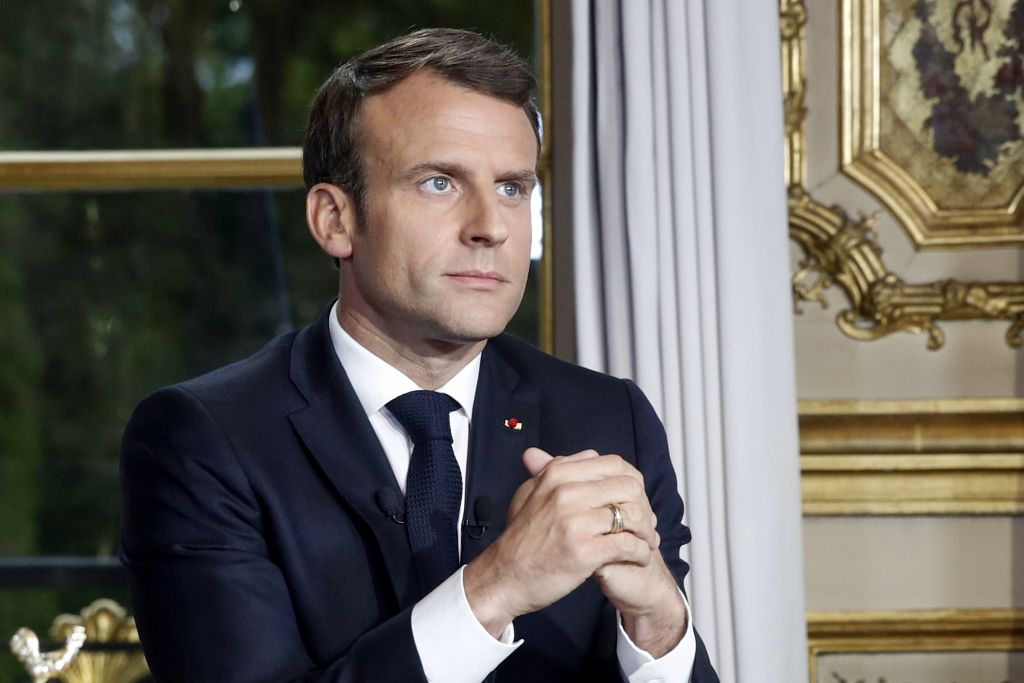As France and the world grieved over the Notre Dame fire, French national politics rolled on behind the scenes. President Macron was scheduled to broadcast to the nation on his reform programme following the national consultation (Grand Débat) that has been underway for three months in the hope of quelling the five-month-old yellow vest protests.
The fire an hour before forced him to cancel the presidential message. But because the details of the reforms were in the pre-recorded speech – and because France is France – the outline of the programme leaked heavily. This was not a bad case of ‘a good day to bury bad news’; Macron was furious. But the national outpouring obliged him to delay the official announcement. What then is in that programme?
There are tax cuts for the middle class, indexation of pensions for the low-paid and local referendums planned. As to whether it will satisfy the yellow vests or heal a fractured society depends largely on what is under those banners.
But more surprising is the proposed abolition of France’s famous postgraduate training school for top civil servants and politicians founded in 1945, the Ecole Nationale d’Administration (ENA) of which Emmanuel Macron is a product, along with four of the eight presidents of the 5th Republic and nine of its 18 prime ministers.
There is an element of virtue signalling in their being singled out, for they are often derided as a technocratic caste aloof from the day-to-day problems of Monsieur-tout-le-monde. And Macron is seen as part of that problem.
Like him they are sociologically unrepresentative of French society, drawn predominantly from the upper middle-class and from that other nursery of France’s ruling class, the Institut d’Etudes Politiques, in Paris (Sciences Po), that Macron also attended. All nations have their elite institutions, from the American Ivy League universities, to Oxford and Cambridge in the UK.
But whereas Ivy League and Oxbridge graduates are from a range of disciplines from science and engineering, to the social sciences, arts and humanities, at Sciences Po one studies predominantly political studies with sprinklings of sociology, economics and law. Those who pass the fiendishly competitive ENA entrance exam, as paid civil servant trainees, then study more politics economics, law and management for a further two years. It is as if the whole of France’s elite were graduates in PPE from a single Oxford college.
It is not merely the content of the énarques education that makes for a restrictive cohort. It is also the method by which they study and are trained. Great emphasis is placed on structure, written and oral – the famous two-part plan. The graduates are remarkable products, tightly-trained and highly-tuned. The criticism is that they are too formatted, that they suffer from group-think and are predisposed to think only for the State.
Given fewer than a hundred are produced for the French market each year, that their public administration postings are awarded according to ranking on graduation, they have the authority conferred by a country where academic achievement is everything.
With public administration jobs for life, the brightest are placed in the ‘grands corps’, the elite pools of civil servants from whom the state draws its top mandarins from ambassadors to prefects and finance inspectors. Able to take time out from the ‘corps’, they can plunge into the political world, and return to their ‘corps’ when they have had their fill. For them, politics does not inevitably end in failure.
Targeting the ENA may conjure some sympathy from a yellow vest public despondent at the technocratic decisions they claim have degraded their existence. But it is a long way off satisfying their material demands. Worse still, Macron may be opening a battle on two fronts. The énarques are a state within a state. As a graduate of the School, Macron is better placed than some to sign its death warrant. But he can expect a rear-guard action from a very powerful lobby of French Sir Humphreys, not to mention his prime minister and several members of his cabinet. Perhaps that is where the leak came from.
There is far more at stake. The idea of a special training school for civil servants has been around since the 1848 Revolution, and it derives from France’s violently unstable history. Successive regimes felt the need to have an elite they could rely on. One of the founders of Sciences Po wrote that France, unlike Britain, had destroyed its ruling class by revolution, and had to create another. That is precisely what they did, and Sciences Po and ENA together have created the only genuine ruling elite in the democratic world. In helping to hold an often divided country together, and single-mindedly serving the interests of the French State, it can be argued that they have served their country well. How easily France will be able to do without them is a big question.







Comments